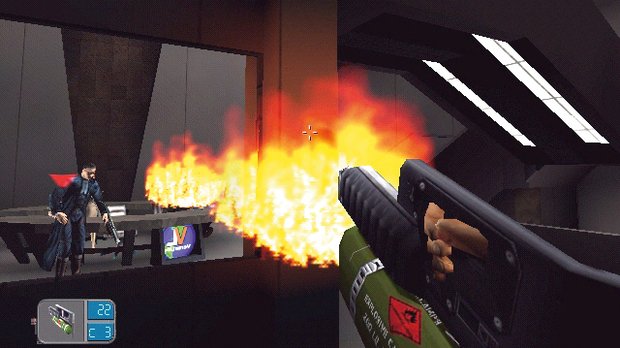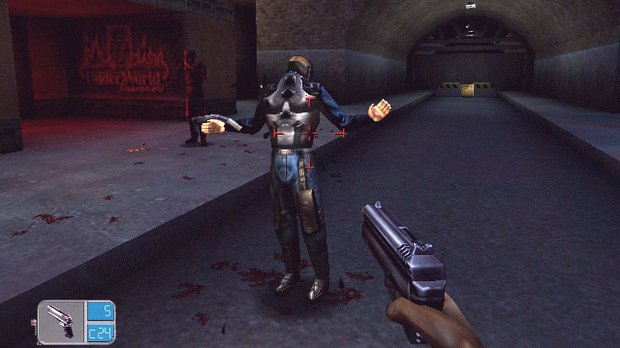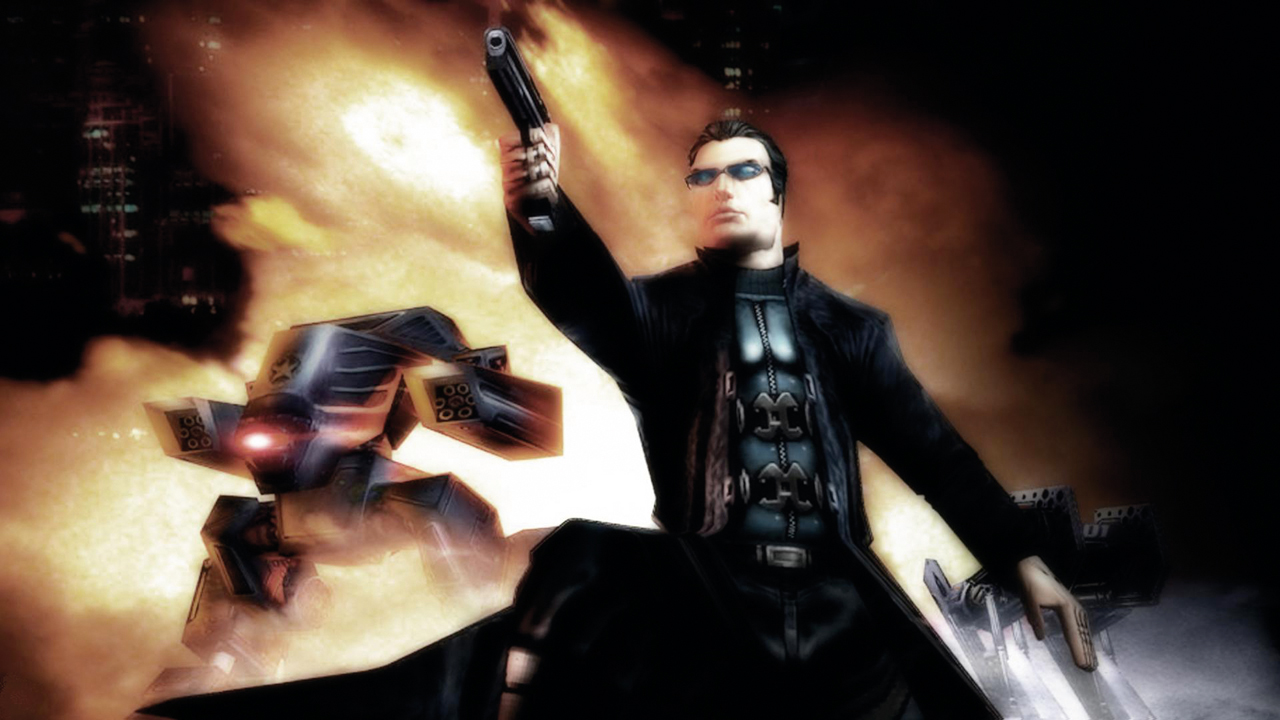What's the secret to Deus Ex's impeccable design?
Here we go, then. The games writers’ game. The mythical masterwork that anyone old enough to remember when trenchcoats and shades were a legitimate style choice just can’t let go. Deus Ex changed more than just a genre, because it can’t be pinned down to just one. More accurately, it changed both the gamer and game designer’s perception of what’s possible in the medium. We’re already deep into smoking jacket, brandy-sipping, beard-caressing territory here, but just go with it and we promise we won’t start quoting Nietzsche.
To really understand why a game about a man with metal veins caused such a flood of praise back in 2002 (and why we'll be seeing another addition to the series soon with Mankind Divided), we need to examine the climate at the time. Remember – this was only seven years beyond Doom on PS1. PS2 gamers were subsisting on a steady diet of PC ports, with 20 Red Factions for every Half-Life. We didn’t have icons such as Colonel Radec or even Captain Price yet.

The kingpin of game design thus far was Id’s John Carmack, who – crucially – had a programming background, and a programmer’s mindset. He typified a culture that valued the engine above the gameplay possibilities, striving for technical perfection above artistry. The contract between the gamer and the game at that point was as follows: make me look cool in set-pieces, give me big guns and don’t make the key cards too hard to find, and I won’t go running down the wrong corridor, trying to break the fourth wall.
Here’s where former Id employee and Ion Storm founder John Romero comes in. He built the Texas studio with the exact opposite credo: rather than sweat over a proprietary engine, use third-party Unreal tech. Rather than funnel you through the fairground, let you run free. That’s exactly what its third title, Deus Ex, did – better and with more possibility than any game before it and most that followed.

You want choice? You can’t handle choice. Every objective in Deus Ex could be tackled in so many ways that the monkey typing out Shakespeare would have his feet up before you even got to the heavy weapons. And we’re not talking binary, ‘use this obviously placed vent or storm in the front door’ choices. Snipe the NSA terrorists from a different postcode, if you fancy it. Use your hacking skills to bypass all the security cameras and turn the turrets against your foes. Sneak from goon to goon, one tranq dart lighter each time. Fire a LAW missile into the wall of explosive barrels you’ve painstakingly assembled from across the level. All together now in your best William Wallace voice: freedom.
Every piece of every level was constructed that way, allowing Duke Nukem and Solid Snake to blitz through it in their own way and soak in equal amounts of satisfaction. If you’re looking for Deus Ex’s most evident legacy, consider Dishonored and Bioshock Infinite’s malleable design. Look at the success of 2011’s Human Revolution, which almost replicated the original game’s scope and vision.

That’s what people remember more than anything: the immaculate game design. It’s almost a footnote that the story, characters and setting were just as good. So good that it perfectly encapsulated millennial culture: fear of technology growing out of control, increasing mistrust of corporations, a poke at the widening wealth gap. The overheard conversations, emails, books and cutscenes referenced movie culture, mythology, sci-fi and philosophy, giving it both intellectual clout at the time and a pang of nostalgia in 2013. Today, Deus Ex is anything but dead – ah, now we’ve gone and broken our promise…
Weekly digests, tales from the communities you love, and more
Click here for more excellent Official PlayStation Magazine articles. Or maybe you want to take advantage of some great offers on magazine subscriptions? You can find them here.
We are Play magazine, the biggest-selling,100% independent, magazine for PlayStation gamers. Founded in 2021, it's brought to you by the same team of writers, editors, and designers as the Official PlayStation Magazine, with the same deep industry access, quality of writing, and passion for all things PlayStation. Follow us for all things PS5, PS4, and PlayStation VR.



